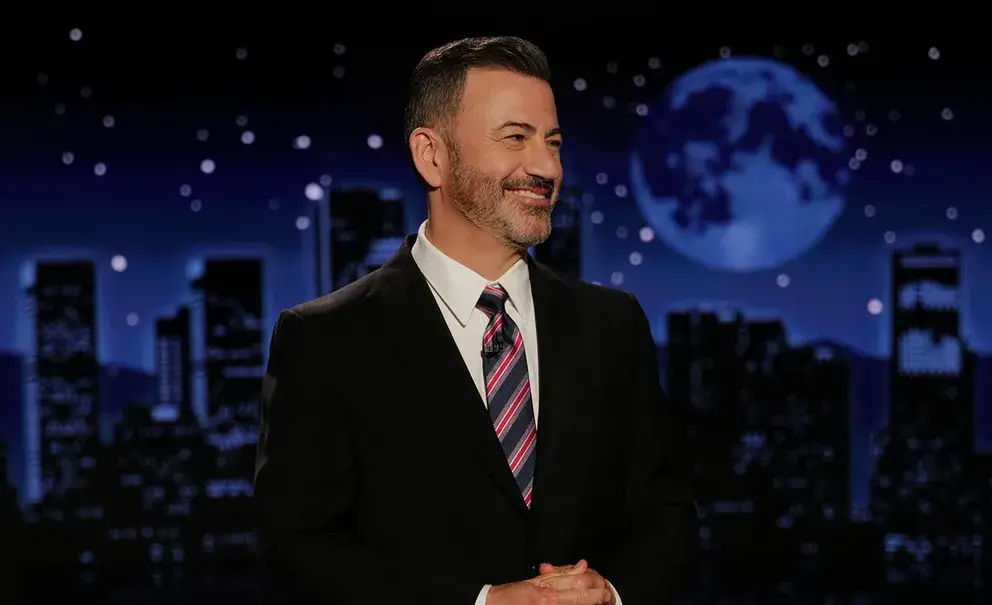What began as a late-night suspension over a few charged words has now spiraled into a national debate on principle, power, and free expression. The controversy surrounding late-night host Jimmy Kimmel’s remarks on Charlie Kirk’s assassination became more than a question of comedy—it evolved into a test of how America wrestles with grief, accountability, and the limits of public discourse.
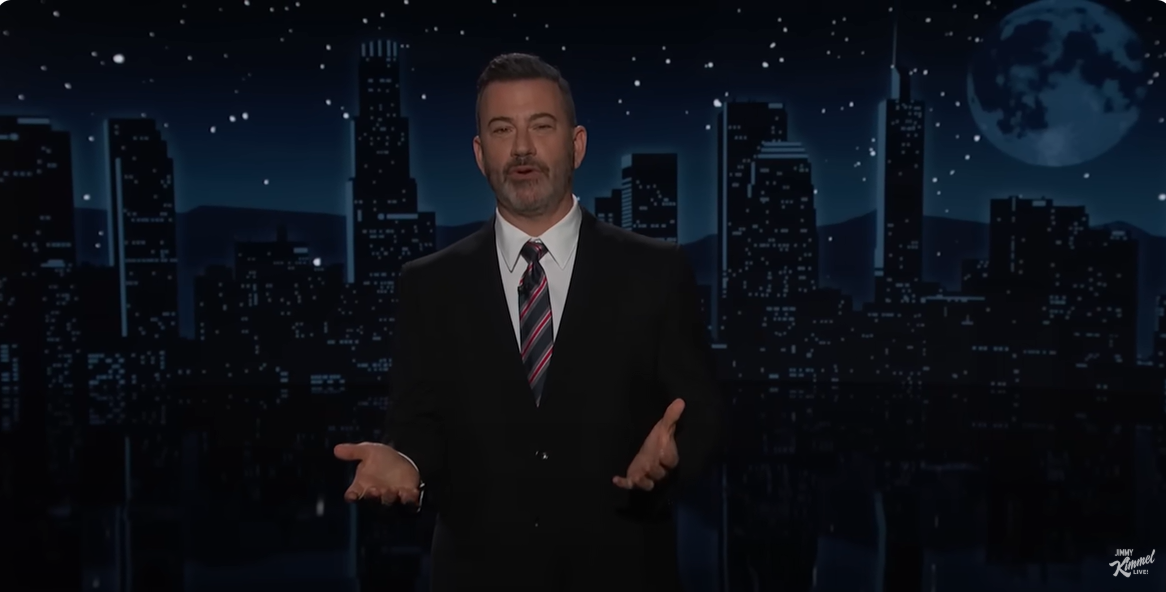
On Tuesday, September 23, 2025, Kimmel returned to Jimmy Kimmel Live! after a six-day suspension by ABC. His comeback, marked by tears, raw emotion, and a pointed defense of free speech, turned into one of the most dramatic nights in recent television history.
A Suspension That Shocked Hollywood
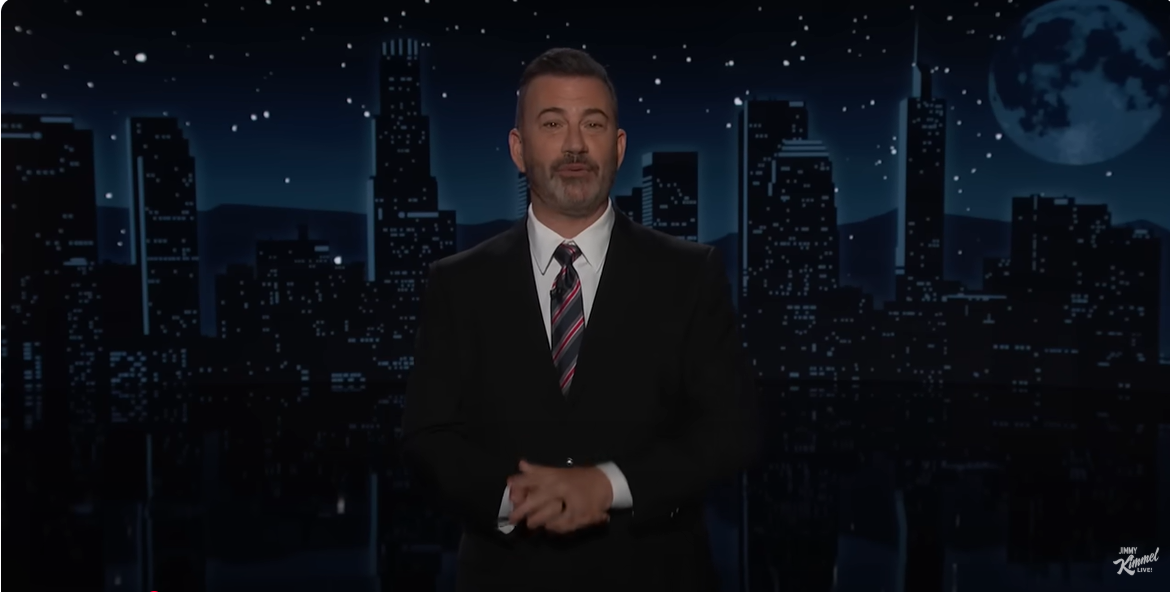
Kimmel had been taken off the air after making remarks perceived as insensitive in the wake of the shocking murder of conservative commentator Charlie Kirk. His suspension immediately sparked protests across Hollywood, ignited debates on social media, and left industry insiders speculating about the future of late-night television.
ABC and its parent company, The Walt Disney Company, announced at the time that the decision was made to avoid “further inflaming” an already fragile national climate. The move, though temporary, drew sharp criticism from viewers and industry unions alike, many of whom saw it as corporate censorship bowing to political pressure.
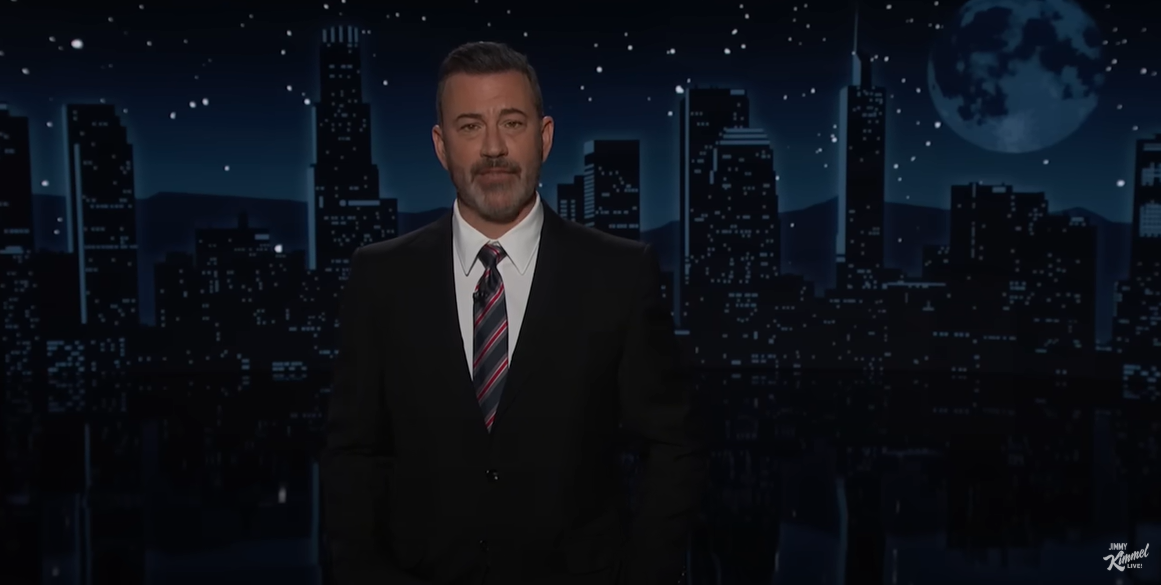
By the time Kimmel returned, the stage was set not just for another episode of late-night comedy, but for a cultural flashpoint.
Kimmel’s Tearful Monologue
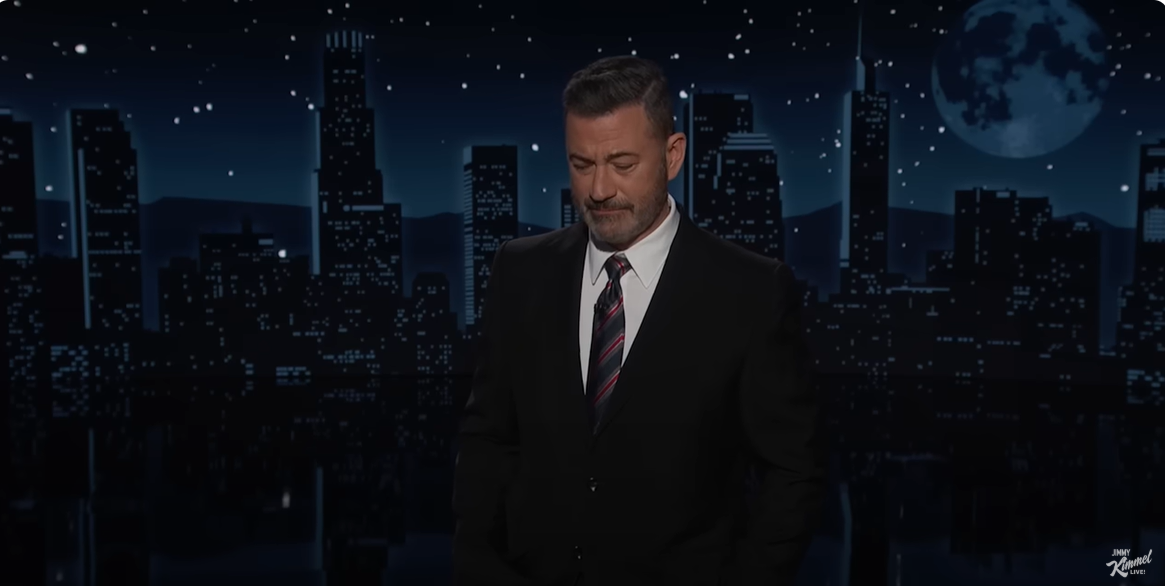
Opening the show with tears in his eyes, Kimmel addressed the controversy directly. His voice cracked as he explained how the past week had changed him, emotionally and professionally.
“It’s been overwhelming. I’ve heard from a lot of people over the last six days—everyone I have ever met has reached out ten or eleven times. I want to thank everyone who checked in,” Kimmel began, pausing as applause filled the studio.
From there, the late-night host set the record straight, rejecting claims that he had mocked Kirk’s death or attempted to politicize the tragedy.
“I want to make something clear because it’s important to me as a human being,” he said. “It was never my intention to make light of the murder of a young man. I don’t think there’s anything funny about it.”
Kimmel reminded viewers that, on the day Kirk was killed, he posted a heartfelt message sending love to the family and calling for compassion. “I meant it then and I mean it now,” he said, visibly shaken.
Addressing the Accusations
The controversy had erupted after Kimmel implied that partisan groups were attempting to score political points in the wake of Kirk’s death. Critics accused him of blaming conservatives for the violence. Kimmel firmly rejected that interpretation.
“It was not my intention to blame any group,” he explained. “This was a sick individual who believed violence was the solution. It isn’t ever.”
The host emphasized that Kirk’s killer did not represent any political ideology but rather embodied personal darkness and despair. “This was not about left or right,” Kimmel said, “This was about someone broken who did something horrific.”
Defending Freedom of Speech
In what became one of the defining moments of his return, Kimmel pivoted from grief to principle, passionately defending the importance of free speech in American life.
“This show is not important. What is important is that we get to live in a country that allows us to have a show like this,” he declared.
He contrasted the U.S. with nations where comedians risk prison—or worse—for criticizing those in power. “Our freedom to speak is what people in those countries admire most about America. That’s something I took for granted—until they pulled my friend Stephen off the air and tried to coerce affiliates to take me off the air. That’s not legal. That’s not American. That’s un-American, and it’s dangerous.”
The studio audience erupted into applause, underscoring how Kimmel’s words had struck a nerve far beyond late-night comedy.
The Divide: Fans vs. Critics
Reactions to Kimmel’s monologue reflected the deep polarization gripping the nation. Supporters praised his honesty, calling the speech “patriotic,” “iconic,” and “sincere.”
One fan wrote on social media: “Jimmy was awesome & I got choked up right along with him. He was so honest and sincere. I’m so happy he’s back.”
Another added: “You made me cry of happiness, Jimmy. Thank you for defending our democracy.”
But critics were quick to dismiss his emotional return. “Oh my gosh, a fake tear,” scoffed one detractor, accusing Kimmel of performative contrition. Others argued that his remarks, however sincere, did not excuse what they viewed as poor judgment in the days immediately following Kirk’s murder.
Disney Breaks Its Silence
Meanwhile, Disney and ABC issued statements clarifying their handling of the controversy. In a carefully worded press release, the company insisted that the suspension was never intended to be permanent but was instead designed to “create space for thoughtful dialogue” with the host.
“We felt some of the comments were ill-timed and thus insensitive,” Disney explained, “and we spent the last days having thoughtful conversations with Jimmy. After those discussions, we decided to return the show.”
While this statement attempted to ease tensions, it raised new questions about corporate influence over television voices and whether Kimmel’s creative freedom would remain intact.
Broadcasters Push Back
Adding to the complexity, major broadcasting groups—including Sinclair and Nexstar—announced they would not air Kimmel’s return despite Disney’s decision.
Jason Smith, Sinclair’s vice chairman, condemned Kimmel’s remarks as “deeply insensitive” and argued that broadcasters had a responsibility to “elevate respectful, constructive dialogue.” Nexstar’s president echoed this sentiment, declaring that continuing to platform Kimmel was “not in the public interest at this time.”
Together, Sinclair and Nexstar control a large number of ABC affiliates across the country, meaning millions of households were unable to watch Kimmel’s highly anticipated return.
The Bigger Picture
Behind the headlines lies a deeper cultural struggle. Kimmel’s suspension and tearful return underscored the fragile balance between corporate caution, political pressure, and the principles of free speech. His case has become a litmus test for how far networks will go to protect—or police—their talent in an era of hyper-partisan outrage.
For Kimmel, the monologue wasn’t just about salvaging his career—it was about reclaiming a sense of moral ground. By blending apology with defiance, sorrow with resolve, he ensured that the conversation around Charlie Kirk’s death, free expression, and media responsibility would outlive the night’s headlines.
Conclusion
Jimmy Kimmel’s return to late-night television marked far more than a comeback. It became a moment of national reflection on grief, accountability, and freedom. Whether praised as sincere or dismissed as performative, his tearful monologue forced Americans to confront uncomfortable truths about how divided the country remains—and how powerful words spoken under the glare of studio lights can shape that divide.
The debate is far from over. For Kimmel, Disney, and the millions watching, the question now is whether late-night comedy can still be a space for both laughter and truth—or whether it will remain another battlefield in America’s culture wars.

Lila Hart is a dedicated Digital Archivist and Research Specialist with a keen eye for preserving and curating meaningful content. At TheArchivists, she specializes in organizing and managing digital archives, ensuring that valuable stories and historical moments are accessible for generations to come.
Lila earned her degree in History and Archival Studies from the University of Edinburgh, where she cultivated her passion for documenting the past and preserving cultural heritage. Her expertise lies in combining traditional archival techniques with modern digital tools, allowing her to create comprehensive and engaging collections that resonate with audiences worldwide.
At TheArchivists, Lila is known for her meticulous attention to detail and her ability to uncover hidden gems within extensive archives. Her work is praised for its depth, authenticity, and contribution to the preservation of knowledge in the digital age.
Driven by a commitment to preserving stories that matter, Lila is passionate about exploring the intersection of history and technology. Her goal is to ensure that every piece of content she handles reflects the richness of human experiences and remains a source of inspiration for years to come.
